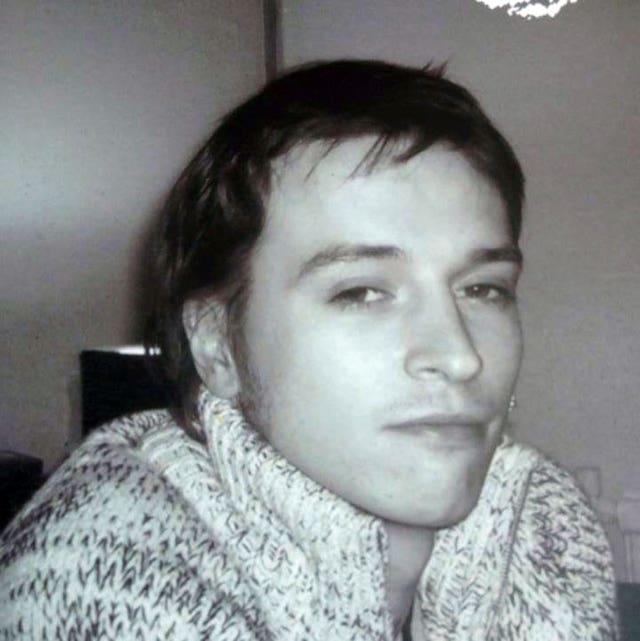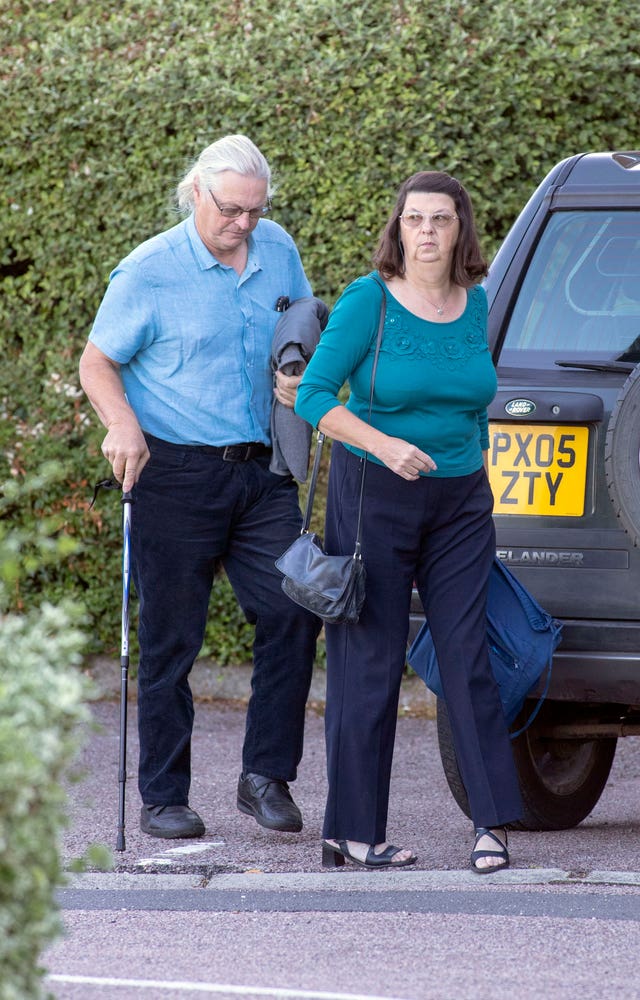Family say verdict in epileptic man’s death is ‘damning assessment of police’
Duncan Tomlin, 32, died in hospital two days after falling unconscious while being restrained by police in 2014.

The family of an epileptic man who died after being restrained face down have said an inquest jury’s verdict that neglect contributed to his death is a “damning assessment of the police’s behaviour”.
Duncan Tomlin, 32, died in hospital two days after he fell unconscious while being detained during a struggle in Haywards Heath in July 2014.
He was handcuffed behind his back, placed in leg and thigh restraints and held face down on the floor before being carried into a police van with his legs curled up behind him.
Officers continued to restrain him face down on the floor in the van before he collapsed.

A jury of six women and four men returned a narrative conclusion at West Sussex Coroner’s Court on Tuesday, finding the medical cause of his death was “cardio respiratory failure due to both restraint in a prone position and the effects of cocaine and methadone”.
They said there was “no urgency” by officers to move Mr Tomlin from the prone position, adding: “Duncan should have been moved on to his side earlier.”
The jury found police training relating to positional asphyxia – where someone suffocates because of the position they are in – was “inadequate” and concluded: “The death was contributed to by neglect.”
Relatives and friends of Mr Tomlin – who have waited nearly five years for answers over his death – hugged after the ruling was read out.
Speaking after the hearing, his father, Paul Tomlin, said: “As a family we feel the finding of neglect by the jury is a damning assessment of the police’s behaviour.
“Coming into the inquest we had real concerns about information sharing, the need to move Duncan onto his side from the prone position, the use of handcuffs, limb restraints, and incapacitant spray, as well as the training that the officers had received in relation to positional asphyxia.
“Having heard the evidence the jury clearly shared these significant concerns.
“They have found not only that there were failings, but that there were gross failings.”

“It has been incredibility traumatic to repeatedly have to watch the footage of Duncan in the back of the police van when we consider he clearly needed help. The jury have agreed.”
Assistant coroner Elisabeth Bussey-Jones, who presided over the four-week inquest in Crawley, said she would be issuing a prevention of further deaths report.
Addressing his family, she said: “Our thoughts are with you as you continue to grieve his loss and I hope this inquest, which has gone on for some time, has brought you some peace.”
The court heard Mr Tomlin had been drinking and had taken drugs before the late-night disturbance and officers restrained him after he ran off.
Sergeant Christopher Glasspool, one of five officers called to give evidence, told jurors Mr Tomlin had been “screaming and shouting incoherently” but then fell motionless as he lay face down on the floor with his hands cuffed behind his back.
In footage of the arrest played in court, the officers could be seen trying to rouse Mr Tomlin while Sgt Glasspool shouted “Dominic” – believing that was his name – in a bid to get his attention.
The court heard that four minutes passed between the time Mr Tomlin appeared to fall unconscious and when he was moved out of the van.
Mr Tomlin was in the van for just under seven-and-a-half minutes before Sgt Glasspool and another officer administered CPR.
An ambulance was called but stood down when it was decided it would be quicker to take him straight to hospital, before being called back again shortly afterwards and a doctor rushed to the scene.
In August Sgt Glasspool, Pc Jamie Jackson and Pc Daniel Jewell were cleared of gross misconduct allegations at a disciplinary hearing.
Pc Russell Watson was also cleared of all allegations at a private hearing that month while Pc Alexander Bennett resigned from the force in 2017.
After the hearing, Selen Cavcav, from charity Inquest, which works with families after a death in custody, said: “We would ask the CPS to reconsider the decision not to prosecute any of the officers involved.”
Sussex Police said: “All of our officers join the police service to protect the public and save life and it is of deep regret when anyone comes to harm.
“We accept the inquest’s narrative verdict and will now thoroughly consider the Coroner’s report and any recommendations within it.”
A CPS spokesman said: “We note the findings in the inquest. Should new evidence be referred to us by the Independent Office for Police Conduct, we would consider it in accordance with our normal practice.”





